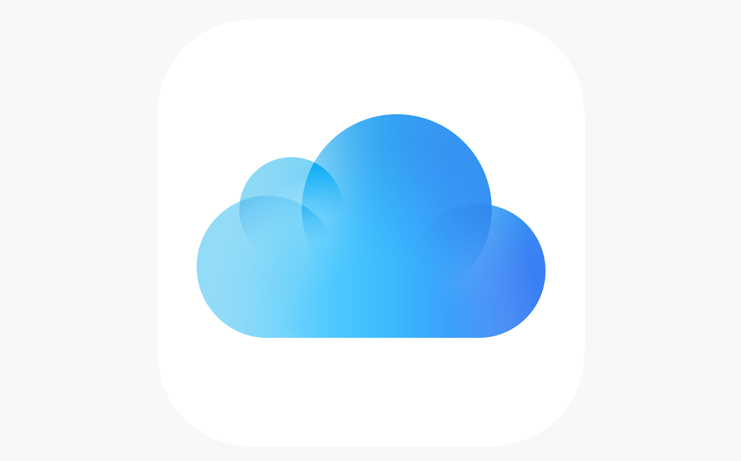iCloud Storage: Understanding Costs and Finding the Perfect Plan
Have you ever stared at the "iCloud Storage Full" notification on your iPhone? You're not by yourself. With the abundance of high-resolution images and videos we take in today's digital world, it's simple to run out of iCloud storage space. Let's explore the world of iCloud storage first, learn how much it costs, how to choose the best plan for your requirements, and discover some reasonably priced iCloud storage options before you panic and begin erasing priceless memories.
How Much Does iCloud Storage Cost?
iCloud storage is provided by Apple in a tiered system with different prices based on how much capacity you use.Here's a little explanation:
- Free: Apple kindly offers you 5GB of free iCloud storage as a treat. For basic needs like backing up contacts and notes, this may be plenty, but for users with a large photo and video collection, it fills up rapidly.
- 50GB: This plan provides a good increase in storage space and costs $0.99 per month. For people who don't have large photo libraries, it's a good solution.
- 200GB: This plan, which costs $2.99 a month, is a well-liked option for people or families with moderate data usage. It enables you to save a respectable library of pictures and movies in addition to conveniently backing up your gadgets.
- 2TB: If you have an excessive amount of images, movies, and huge files and are a data hoarder, the 2TB plan, which costs $9.99 a month, could be your savior. It offers enough storage to satisfy even the pickiest customers.
Choosing the Right iCloud Storage Plan: It's All About Needs
The next question is: which iCloud storage plan is best for you now that you know how much it costs?Here's a summary to aid in your decision:
- Light Users: The free 5GB plan might be plenty if your main uses for your iPhone are making calls, sending messages, and accessing the internet. It might not be sufficient, though, if you occasionally download music or shoot pictures. For a little breathing room, think about the 50GB plan.
- Moderate Users: Do you use your iPhone to snap pictures but don't have a large collection? Do you periodically make a backup of your MacBook or iPad? A great option is the 200GB package. The majority of users can save movies, images, and device backups there with ease.
- Heavy Users: Those with a data-hungry lifestyle, such as photographers and videographers, will probably require the 2TB plan. Large media files can be stored there with ease, and numerous device backups are made possible.
Optimizing Your Storage: Before You Buy More
Before you jump to purchase more storage, consider some ways to optimize your current space. Here are some tips:
- Review Your iCloud Storage: Apple offers a thorough analysis of the items occupying your iCloud storage. Go to Settings > Your Name > iCloud > Manage Storage to see the culprits.
- Clean Up Old Photos and Videos: Examine your collection of images and videos with a harsh eye. Are there outdated films you don't need, hazy photos, or duplicate selfies? Remove them to make a substantial amount of space.
- Offload Unused Apps: Do you have any unused apps taking up space on your device? Offload them to conserve storage and preserve the integrity of your data. Later on, you may always download them once more.
- Enable iCloud Photos Optimization: This smart function maintains smaller, optimized copies of your images on your device and stores full-resolution photos in iCloud.It conserves room without significantly lowering quality.
Conclusion
So, how much is iCloud storage? After reading this article, you now know how to choose the best iCloud plan based on your requirements. Even if iCloud is a practical choice, it might not be the most economical iCloud storage plan available. You still have other cloud providers to choose from, such as Google Drive, OneDrive, Dropbox, Flickr, MEGA, etc.

- Cloud Transfer: Move one cloud data to another without download and re-upload.
- Cloud Sync: Sync data across clouds seamlessly in real time.
- Cloud Backup: Dynamically backup and restore files between clouds.
- Automatic: Set up a schedule to make task automatically run as preferred.
- Offline: Transfer, sync or backup cloud data online without going through local.
- Efficient: Access and manage all your clouds with a single login.
Can I expand my iCloud storage for free?
How do I check how much iCloud storage I'm using?
Can I share my iCloud storage with someone else who doesn't have an Apple ID?
What happens if my iCloud storage is full?
Is there a way to automatically free up space in iCloud storage?
MultCloud Supports Clouds
-
Google Drive
-
Google Workspace
-
OneDrive
-
OneDrive for Business
-
SharePoint
-
Dropbox
-
Dropbox Business
-
MEGA
-
Google Photos
-
iCloud Photos
-
FTP
-
box
-
box for Business
-
pCloud
-
Baidu
-
Flickr
-
HiDrive
-
Yandex
-
NAS
-
WebDAV
-
MediaFire
-
iCloud Drive
-
WEB.DE
-
Evernote
-
Amazon S3
-
Wasabi
-
ownCloud
-
MySQL
-
Egnyte
-
Putio
-
ADrive
-
SugarSync
-
Backblaze
-
CloudMe
-
MyDrive
-
Cubby
